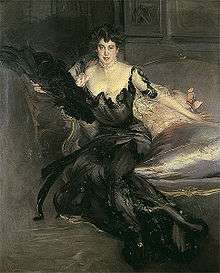Johannesburg Art Gallery
 Entrance of Johannesburg Art Gallery | |
 Location within Johannesburg | |
| Established | 1910 |
|---|---|
| Location | Klein and King George streets, Joubert Park, Johannesburg |
| Coordinates | 26°11′49″S 28°02′50″E / 26.197039°S 28.047104°ECoordinates: 26°11′49″S 28°02′50″E / 26.197039°S 28.047104°E |
| Type | Art Museum |
| Curator | Antoinette Murdoch |
The Johannesburg Art Gallery is an art gallery in Joubert Park in the central business district of Johannesburg, South Africa. It is the largest gallery on the subcontinent with a collection that is larger than that of the Iziko South African National Art Gallery in Cape Town. [1]
The building, which was completed in 1915, was designed by Sir Edwin Lutyens, with Robert Howden working as supervising architect, and consists of 15 exhibition halls and sculpture gardens. It houses collections of 17th-century Dutch paintings, 18th- and 19th-century British and European art, 19th-century South African works, a large contemporary collection of 20th-century local and international art, and a print cabinet containing works from the 15th century to the present.
Collection

The initial collection was put together by Sir Hugh Lane, and exhibited in London in 1910 before being brought to South Africa. Florence, Lady Phillips, an art collector and wife of mining magnate Lionel Phillips, established the first gallery collection using funds donated by her husband.[2] Lady Phillips donated her lace collection and arranged for her husband to donate seven oil paintings and a Rodin sculpture to the collection.
The current collection includes works by Auguste Rodin, Dante Gabriel Rossetti, Pablo Picasso, Camille Pissarro, Claude Monet, Edgar Degas, Herbert Ward and Henry Moore, and South Africans such as Gerard Sekoto, Walter Battiss, Alexis Preller, Maud Sumner, Sydney Kumalo, Ezrom Legae and Pierneef. It also houses an extensive collection of the work of contemporary local artists.
History

The Johannesburg Art Gallery collection was opened to the public in 1910, before the gallery itself had been built, and was housed at the University of the Witwatersrand. The architect, Sir Edwin Lutyens, came to South Africa in 1910 to examine the site and begin the designs, after Lady Florence Phillips had secured funding from the city for a purpose-built museum. The building was built with a south-facing entrance, but was not completed according to the architect's designs—no part of the museum was broken down to let in the light. It was opened to the public, without ceremony, in 1915, just after the start of the First World War. The gallery was extended during the 1940s with east-west wings along the south galleries according to the Lutyens' design. The present north facade and galleries, constructed during the 1986–87 extension were designed by Meyer Pienaar and Associates.[3][4]
Regeneration
As a major focus of urban regeneration programmes, the gallery provides the base for the Joubert Park Public Art Project and is developing links with awareness groups and community centres based in the surrounding urban area.
Chief curators
- P Anton Hendriks (1937 - 1964)
- Nel Erasmus (1964 - 1977)
- Pat Senior (1977-1983)
- Christopher Till (1983 -1991)
- Rochelle Keene (1991 - 2003)
- Clive Kellner (2004 - 2008) [5]
- Antoinette Murdoch (2009 - present) [6]
Thefts
- June 2002 St Thomas by El Greco.
- August 2002 Suitcase by Kendell Geers. Sculpture recovered in a damaged state.
- 1990s Talion by Gavin Younge. This large cast-bronze sculpture was commissioned by the gallery as part of its centenary celebrations in 1986. Thieves stole it by cutting bits off using a portable generator and an angle grinder fitted with a metal-cutting disc. Despite an insurance payout, the gallery never recast the missing sections.
- January 2011 General Hoche by Jules Dalou.
- September 2011 Mourning Woman by Sydney Kumalo, Peter Pan by Romano Romanelli and King of the Universe by Ernest Ullman.
References
| Wikimedia Commons has media related to Johannesburg Art Gallery. |
- ↑ "An artistic treasure house in the middle of Joburg". City of Johannesburg. Retrieved 15 April 2016.
- ↑ Johannesburg Art Gallery - Reviews and Ratings of Sights in Johannesburg - New York Times Travel
- ↑ Jillian Carman Uplifting the Colonial Philistine: Florence Phillips and the making of the Johannesburg Art Gallery 2006 Johannesburg: Wits University Press ISBN 1-86814-436-4
- ↑ City of Johannesburg - An artistic treasure house in the middle of Joburg
- ↑ "Clive Kellner heads off from JAG". City of Johannesburg. Retrieved 15 April 2016.
- ↑ "The JAG gets a new curator". City of Johannesburg. Retrieved 15 April 2016.
External links
http://www.artefacts.co.za/main/Buildings/bldgframes.php?bldgid=9176&archid=2131